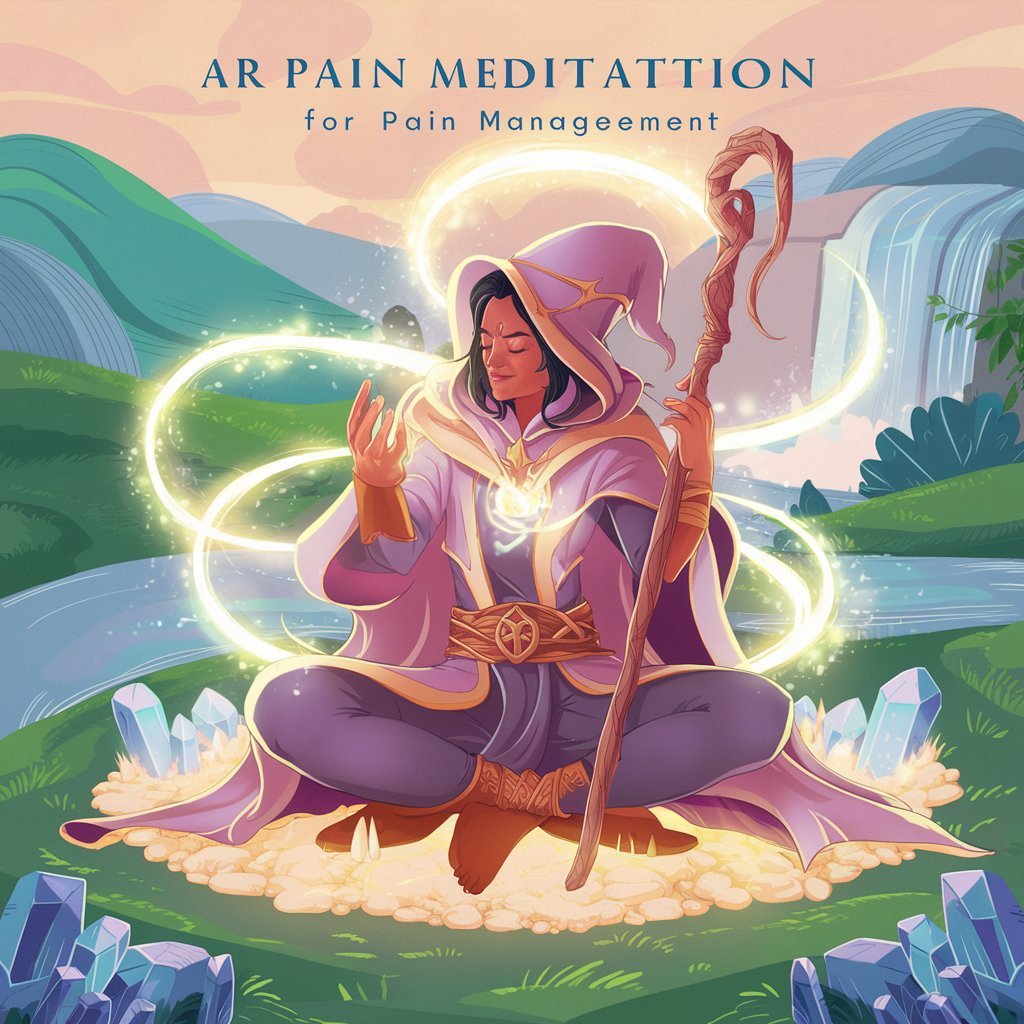Meditation and Addiction Recovery: Overcoming Cravings and Triggers
Hey there, my brave and resilient friends of 2024! It’s your favorite mindfulness explorer, Nita Sharda, here to take you on a journey into the world of meditation and addiction recovery. Now, I know what some of you might be thinking – “Addiction recovery? Isn’t that just for grown-ups or people who have really serious problems?” And I totally get it – when we’re young and healthy, it can be hard to imagine what it’s like to struggle with addiction or to feel like we’ve lost control over our own lives.
But here’s the thing – addiction is not just about drugs or alcohol. It can be any behavior or substance that we feel compelled to use or do, even when it’s causing harm to ourselves or others. It could be things like video games, social media, junk food, or even relationships. And while not everyone who uses these things will develop an addiction, it’s important to understand that addiction is a real and serious issue that can affect people of all ages, backgrounds, and walks of life.
The good news is, there is hope and help available for anyone who is struggling with addiction or wanting to make positive changes in their lives. And one of the most powerful tools we have for overcoming cravings, triggers, and other challenges of addiction recovery is meditation.
Today, we’re going to explore what addiction and recovery are all about, how meditation can support the healing process, and some simple practices that you can try at home to start building your own inner strength and resilience. But before we dive in, let me make one thing clear – this is not about judging or shaming anyone who is struggling with addiction. It’s about offering compassion, understanding, and practical tools for anyone who wants to live a healthier, happier, and more fulfilling life. So, let’s approach this topic with an open mind, a kind heart, and a willingness to learn and grow together.
Are you ready to explore the transformative power of meditation for addiction recovery? Let’s take a deep breath, roll up our sleeves, and get started!
What is Addiction, and Why is it So Hard to Overcome?
First things first, let’s talk about what addiction actually is. Addiction is a complex brain disorder that is characterized by compulsive substance use or behavior, despite harmful consequences. It’s not just a matter of willpower or moral failing – it’s a chronic condition that affects the reward system in the brain, leading to intense cravings, impaired control, and continued use or behavior even when it’s causing problems in a person’s life.
Some common signs and symptoms of addiction include:
- Using more of a substance or engaging in a behavior for longer than intended
- Unsuccessful attempts to cut back or stop using
- Spending a lot of time obtaining, using, or recovering from the effects of the substance or behavior
- Craving or strong urges to use the substance or engage in the behavior
- Failing to fulfill important obligations at work, school, or home due to substance use or behavior
- Continuing to use or engage in the behavior despite negative consequences, such as health problems, legal issues, or relationship conflicts
- Giving up important activities or relationships in favor of the substance or behavior
Addiction can have devastating effects on a person’s physical, mental, and social well-being, as well as on their loved ones and communities. It can lead to health problems, financial difficulties, legal issues, and strained relationships, and can even be life-threatening in some cases.
So, if addiction is so harmful, why is it so hard for people to overcome? There are a few key reasons:
- Addiction changes the brain’s reward system, making it harder to experience pleasure and satisfaction from other activities or relationships. This can lead to a cycle of craving and using, as the person seeks to recreate the intense high or relief they once felt from the substance or behavior.
- Addiction often co-occurs with other mental health issues, such as depression, anxiety, or trauma, which can make it harder to cope with cravings and triggers. These underlying issues may need to be addressed in order for the person to fully heal and recover.
- Addiction can be isolating and stigmatizing, making it harder for people to reach out for help or support. They may feel ashamed, guilty, or hopeless about their situation, and may not know where to turn for guidance or resources.
- Addiction recovery is a lifelong process, not a one-time event. It requires ongoing commitment, effort, and support to maintain sobriety and prevent relapse, even in the face of challenges or setbacks.
But despite these obstacles, recovery is possible for anyone who is willing to seek help and do the work. And one of the most effective and accessible tools for supporting addiction recovery is meditation.
How Meditation Can Support Addiction Recovery
So, how exactly can meditation help people overcome addiction and maintain long-term recovery? Here are a few key ways:
Meditation Reduces Stress and Anxiety
One of the main reasons people turn to substances or addictive behaviors is to cope with stress, anxiety, or other difficult emotions. But over time, these coping mechanisms can actually make stress and anxiety worse, leading to a vicious cycle of craving and using.
Meditation, on the other hand, has been shown to be a powerful tool for reducing stress and anxiety, by calming the nervous system, lowering cortisol levels, and promoting feelings of relaxation and well-being. When we meditate regularly, we develop a greater capacity to observe and accept our thoughts and feelings, without getting caught up in them or reacting impulsively. We also learn to cultivate more positive and compassionate states of mind, like gratitude, kindness, and self-compassion, which can help us navigate challenges with greater ease and resilience.
By reducing stress and anxiety through meditation, people in recovery can feel more grounded, centered, and able to cope with cravings and triggers as they arise, without turning to substances or addictive behaviors for relief.
Meditation Increases Self-Awareness and Insight
Another key aspect of addiction recovery is developing greater self-awareness and insight into one’s thoughts, feelings, and behaviors. Often, people with addiction have a distorted or limited view of themselves and their situation, and may not fully understand the impact of their actions on themselves and others.
Meditation is a powerful tool for increasing self-awareness and insight, by creating a space of quiet reflection and introspection. When we meditate, we practice observing our thoughts and feelings with curiosity and non-judgment, rather than getting caught up in them or reacting automatically. We also learn to tune into our body’s sensations and needs, and to make choices that are aligned with our values and goals.
By increasing self-awareness and insight through meditation, people in recovery can gain a clearer understanding of their addiction and its underlying causes, as well as their own strengths, challenges, and aspirations. They can also develop greater empathy and compassion for themselves and others, which can help them build stronger relationships and support systems in recovery.
Meditation Enhances Impulse Control and Decision-Making
One of the hallmarks of addiction is impaired impulse control and decision-making. People with addiction may struggle to resist cravings or urges, even when they know the consequences will be harmful. They may also make impulsive or risky choices that can jeopardize their health, relationships, or recovery.
Meditation has been shown to enhance impulse control and decision-making, by strengthening the prefrontal cortex, the part of the brain responsible for executive functions like planning, problem-solving, and self-regulation. When we meditate regularly, we develop greater cognitive flexibility and emotional regulation, which can help us pause before acting on impulses or cravings, and make more thoughtful and intentional choices.
By enhancing impulse control and decision-making through meditation, people in recovery can feel more empowered and in control of their lives, and can make choices that support their long-term health and well-being, rather than just seeking short-term relief or gratification.
Meditation Fosters Connection and Support
Finally, meditation can also support addiction recovery by fostering a sense of connection and support, both within oneself and with others. Addiction can be a very isolating and lonely experience, as people may feel ashamed, judged, or disconnected from loved ones and communities. This isolation can make it harder to reach out for help or maintain motivation in recovery.
But meditation is a practice that can help cultivate a deep sense of inner connection and self-compassion, as well as a greater sense of belonging and interconnectedness with others. When we meditate, we practice being present with ourselves and our experiences, without judgment or expectation. We also learn to extend compassion and kindness to ourselves and others, recognizing that we are all human and deserving of love and care.
By fostering connection and support through meditation, people in recovery can feel less alone and more supported on their journey, and can build stronger relationships with themselves and others. They can also tap into a greater sense of meaning, purpose, and spiritual connection, which can provide motivation and inspiration in recovery.










Leave a Reply